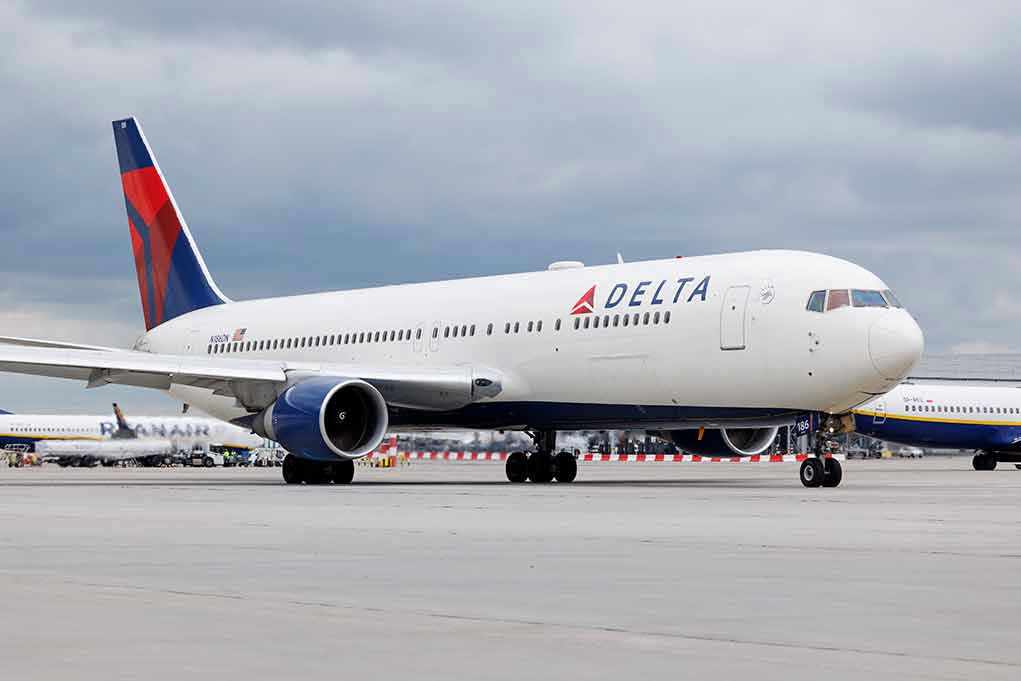
Federal agents stormed a Delta Air Lines cockpit at San Francisco International Airport, arresting the co-pilot on charges related to child sexual abuse material—leaving the nation questioning how such a person made it into the cockpit in the first place.
At a Glance
- Federal agents arrested a Delta co-pilot at SFO immediately after landing, shocking passengers and crew.
- The arrest relates to charges of child sexual abuse material, with Homeland Security and Contra Costa County Sheriff’s Office leading the operation.
- This high-profile incident raises new alarms about airline employee vetting and inter-agency communication.
- Delta and federal authorities have confirmed the arrest, but the co-pilot’s identity and full details remain undisclosed.
Delta Co-Pilot Arrested in Full View of Passengers: Law Enforcement Cracks Down While Airline Security Protocols Come Under Fire
Homeland Security agents and air marshals, working with Contra Costa County law enforcement, executed a dramatic arrest on July 26, 2025, as a Delta Air Lines flight arrived from Minneapolis at San Francisco International Airport. Agents stormed the cockpit, instructing passengers to remain seated while they cuffed and removed the co-pilot right in front of stunned travelers and flight crew. The warrant, issued by the Contra Costa County Sheriff’s Office, cited charges related to child sexual abuse material, a crisis-level crime that has increased alongside advancements in technology. All eyes now turn to the gaping holes in background checks and employee monitoring that allowed this man to operate a commercial airliner with hundreds of lives in his hands.
Delta Air Lines co-pilot arrested by Homeland Security on charges of child sexual abuse material https://t.co/qaJ8s4H2bd
— FOX Business (@FoxBusiness) July 28, 2025
The presence of federal agents and the public nature of the arrest sent a clear message: law enforcement is finally taking these crimes seriously, but it also exposed the glaring failures of the airline’s vetting process. Passengers, already anxious about air travel, were left even more shaken by the sight of armed agents boarding the plane and the realization that someone facing these horrific charges could have been responsible for their safety at 30,000 feet. The aviation industry, which touts strict security and background checks, will now have to answer for how this slipped through the cracks.
Airline Industry’s Vetting Procedures Under Scrutiny as Delta and Federal Agencies Trade Statements
Delta Air Lines, quick to wash their hands of the incident, issued a generic statement deferring to law enforcement and refusing to provide further comment or even confirm the co-pilot’s identity. Homeland Security Investigations, meanwhile, confirmed their role in the arrest but left the public with more questions than answers. The Contra Costa County Sheriff’s Office, which led the investigation, has yet to make a public statement, fueling even more speculation and frustration among those demanding transparency and accountability. Passengers and families who rely on commercial airlines for safe travel deserve better than this wall of silence.
While Delta and law enforcement agencies scramble to control the narrative, the incident has exposed a power struggle and a lack of clear responsibility. Law enforcement may have operational authority, but the airline is left to manage the fallout and public outrage. This was not some off-duty incident quietly handled behind closed doors; this was a federal raid on a commercial flight, broadcast for all to see, and it demands real answers—not platitudes from corporate PR.
Wider Fallout: Public Safety, Policy Failures, and the Erosion of Trust in American Institutions
The immediate impact on passengers and crew cannot be overstated—shock, fear, and anger ripple out from the incident, with many questioning the integrity of airline operations and the safety of American air travel. The aviation industry now faces the threat of lawsuits, regulatory crackdowns, and a wave of public skepticism that could cripple consumer confidence. For years, Americans have been told to trust the system, to endure endless security screenings and background checks, only to find out that the real threats might be sitting in the cockpit. This isn’t just about one airline or one bad actor; it’s about a system that failed on every level, from background checks to ongoing monitoring.
Industry experts and legal analysts are lining up to point out the obvious: this kind of arrest is rare, but it shouldn’t be possible at all. The fact that it took a full-scale federal operation to remove a suspected criminal from the controls of an airliner is a damning indictment of the status quo. Calls for stricter pre-employment screening, real-time data sharing between agencies, and a top-to-bottom review of airline security protocols are growing louder. Ordinary Americans are left to wonder—if this can happen in the cockpit, what else is slipping through the cracks in our institutions, and who is really looking out for their families?




